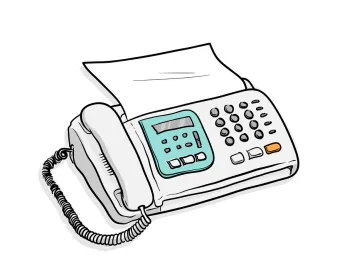We’ve previously reported on the D.C. Circuit’s March 31 decision, which held that “the FCC’s 2006 Solicited Fax Rule is . . . unlawful to the extent that it requires opt-out notices on solicited faxes.” Bais Yaakov of Spring Valley v. FCC, No. 14-1234, Slip. Op. at 4 (D.C. Cir. 2017). And as we recently discussed, the plaintiff intervenors in that case have sought a rehearing en banc. Given the significance of the D.C. Circuit’s decision in TCPA class actions, it would not be a surprise if the en banc petition is just the beginning of the plaintiffs’ bar’s efforts to attack the D.C. Circuit’s decision. While the D.C. Circuit’s ruling is welcome news to defendants in TCPA actions, the Eastern District of Missouri recently dealt another blow to the plaintiffs’ bar. In that regard, shortly before the D.C. Circuit’s ruling, a district court held that an allegedly deficient opt-out notice in a fax the plaintiff invited did not give rise to a concrete injury under Spokeo, and dismissed the case for lack of Article III standing. St. Louis Heart Ctr., Inc. v. Nomax, Inc., No. 4:15-CV-517 RLW, 2017 U,S., Dist, LEXIS 39411 (E.D. Mo. Mar. 20, 2017).
In Nomax, a Missouri medical practice brought a putative class action claiming that the defendant pharmaceutical company violated the TCPA by sending twelve fax advertisements offering samples of its product that had allegedly deficient opt-out notices. Id. at *2. The plaintiff had previously requested samples from the defendant on three or four occasions, and indeed, the plaintiff’s corporate representative conceded during his deposition that “the issue of consent . . . will not be an issue in the proceeding onward in the case.” The witness also admitted that the plaintiff never attempted to opt out of the faxes because “he asserted previous attempts to do so with other faxes were ineffective.” Id. at *4.
The defendant moved to dismiss for lack of standing, arguing that because the plaintiff consented to the faxes, it did not suffer any concrete and particularized injury sufficient to establish standing. In response, the plaintiff argued that the defendant’s failure to provide the requisite opt-out information was “an ‘intangible’ but concrete injury,” and highlighted the loss of paper, toner, and the use of its phone line, as well as the “heightened risk of receiving further unwanted fax advertisements.” Id. at *5.
Relying on Spokeo, the court rejected the plaintiff’s argument, and concluded that the plaintiff lacked standing. Specifically, the court held that an allegation of mere technical deficiencies in an opt-out notice—on faxes that the plaintiff both “invited and did not rebuke”—resulted in a claim of “bare procedural violation, divorced from any concrete harm.” Id. at *6 (quoting Braitberg v. Charter Commc’ns, Inc., 836 F.3d 925, 930 (8th Cir. 2016)). The court further reasoned that regardless of whether the opt-out notices complied with the TCPA’s various technical requirements, the notices provided the plaintiff with the “means and opportunity to opt-out of receiving future faxes.” Finally, as a matter of law, the court found that “a heightened risk of receiving future unwanted fax advertisements does not present a concrete injury.” Id. at *6.
Nomax was decided upon the heels of a similar Central District of California decision granting a defendant’s motion to dismiss a TCPA class action upon Spokeo grounds. ARcare v. Qiagen N. Am. Holdings, Inc., No. CV 16-7638 PA (ASX), 2017 WL 449173 (C.D. Cal. Jan. 19, 2017) (holding that although Plaintiff’s injury was sufficiently concrete and particularized, Plaintiff lacked standing because the injury was not traceable to Defendant’s alleged TCPA violation because even if Defendant had included a compliant opt-out notice “Plaintiff would have lost the same amount of ink, toner, paper and time”). The Nomax and Qiagen courts’ Spokeo analyses provide another powerful defense to TCPA claims involving solicited faxes, and will come in particularly handy to the extent the plaintiffs’ bar argues that the D.C. Circuit’s ruling does not apply outside of the D.C. Circuit. While such an argument is of dubious validity (especially in light of Chairman Pai’s statement, as discussed more fully in our prior post [hyperlink 3/31 Kay post]), it seems clear the plaintiffs’ bar is not giving up the fight over solicited faxes.
Plaintiff has subsequently appealed the Nomax District Court’s decision and briefing is due to the Eighth Circuit at the end of May.





 />i
/>i
